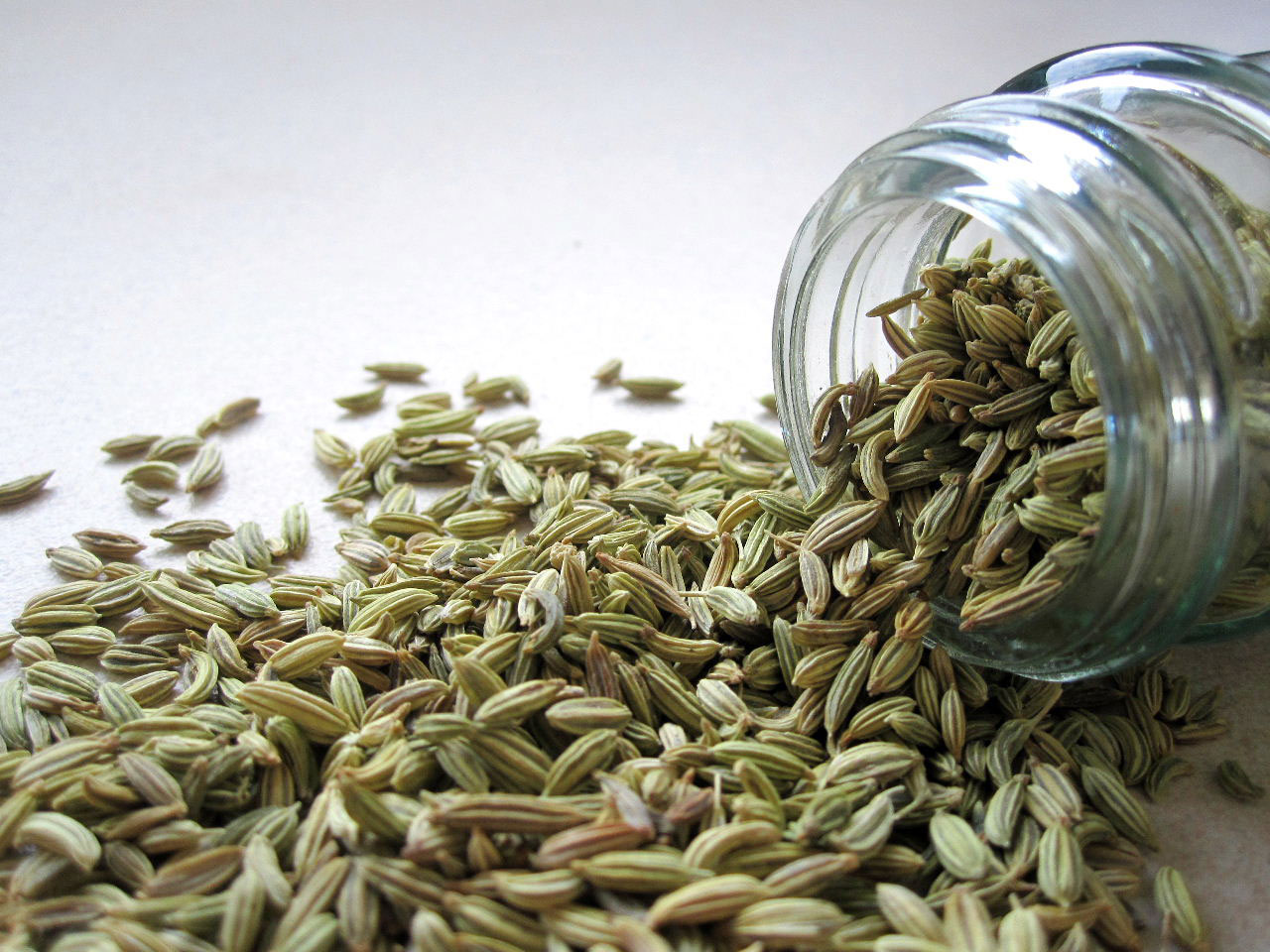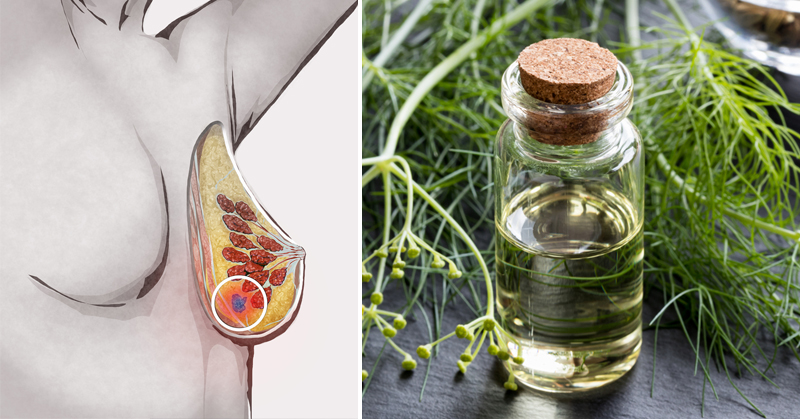Fennel essential oil, is best known for its digestive health components. However, this essential oil also has other medicinal properties. It has a taste similar to licorice, and the seed is used in a variety of cooking and baking. In fact, you may recognize the taste of a fennel seed as a popular ingredient in many sausages. It’s also used in recipes for vegan sausages that use vital wheat gluten. The strong, spicy flavor isn’t for everyone, of course. Yet while you might not be a fan of its licorice-like taste, you should still consider giving fennel essential oil a try, especially if you suffer from certain stomach problems. (1) Fennel is in the carrot and parsley family, and is related to cumin, anise, dill, and caraway. It’s great for sprinkling on salads and into soups, and both the seed and oil boast plenty of health benefits. You can learn more about this essential oil by reading the benefits and ideas for use outlined below.

Here are 6 amazing health benefits of fennel oil:
1. Heals Wounds
Studies show that fennel oil and cinnamon oil act as natural antibiotics. As such, these essential oils are possible viable methods to address some strains of bacteria. Furthermore, fennel essential oil contains certain compounds that keep wounds from becoming infected.
Fennel essential oil can additionally speed up the process of healing. (2) If you’re looking to quickly heal a cut, you might consider using fennel oil. Be sure to dilute it first before applying directly to a wound or cut. It will also help reduce the development of new scars as well as diminish the appearance of old scars. Furthermore, you can use fennel essential oil to speed up the healing time of burns.
2. Reduces and Prevents Spasms in the Gut
If you’re not sure what a stomach spasm feels like, it may sound relatively harmless to you. After all, the name itself sounds like it may be nothing more than a twitching muscle. This erroneous assumption may come from the concept of a simple muscle spasm, when you see or feel your muscle clenching with little to no pain involved. However, stomach spasms can indeed be painful, to say the least. In fact, sometimes the pain from a stomach spasm is severe. And stomach spasms can lead to an uncontrollable cough, convulsions, hiccups, and cramps, further adding to the level of pain. Fennel oil, however, can have a relaxing effect on your body, which can help quell the pain.
In fact, fennel seed oil may help a fussy baby, as well. Research shows fennel seed oil reduces intestinal spasms of colicky infants. (3)
3. Contains Antioxidants and Antimicrobial Components
Fennel essential oil holds antimicrobial characteristics. Flavour and Fragrance Journal published a study which examined the activity of the essential oil from seeds native to Pakistan. The analysis of the fennel oil showed that there are about 23 compounds with impressive amounts of total phenolic and bioflavonoid contents.
Essentially, that means fennel oil fights free radical damage as well as provides antimicrobial activity against some strains of bacteria and pathogenic fungi. (4)
4. Relieves Gas and Constipation

You may notice that when you eat a large quantity of healthy food, such as raw vegetables, that your stomach ends up cramped and bloated. Fennel and fennel essential oil, however, may in fact do the opposite. For example, fennel can help clear the bowels, relieve constipation, and help rid of gas and bloating. Furthermore, it can help eliminate the formation of additional gases and treat IBS symptoms. (5, 6)
Fennel is a volatile oil, meaning that it evaporates quickly. As such, it turns into vapor rapidly, and will thereby offer relief from gas much more quickly than some other forms of natural digestive treatments.
If you suffer from gas issues, try adding one or two drops of fennel essential oil to your favorite tea.
5. May Fight Cancer
Fennel’s main volatile oil is known as anethole, which may serve as a possible cancer-fighter. It does this by inhibiting the activation of a “gene-altering inflammation-triggering molecule associated with cancer known as NF-kappaB.” (7) However, women with breast or uterine cancer should know that anethole boosts estrogen production, which can be counterproductive when fighting these types of cancers.
6. Aids in Weight Loss

Fennel seeds have long been used during Lent and fasts to keep hunger at bay. Ingesting fennel seed essential oil can help support weight loss because it boosts your metabolism while suppressing your appetite. Fennel also has the ability to help minimize fat deposits in the bloodstream.
You can add fennel essential oil to your tea, or even try sprinkling the seeds on your salads or other dishes. (8) It compliments both the savory and sweet, so allow yourself to experiment to see what fun, new recipes you can invent.
How to Enjoy Fennel Essential Oil:
- Add a drop or two to your favorite tea.
- Mix a few drops into a homemade soup or stew.
- Stir into your water along with a drop of wild orange. This will help fight off feelings of hunger.
- Mix it into a carrier oil for external use.
- To stop cravings, try adding a drop of fennel essential oil under your tongue.
- For a creative take on traditional deserts, add fennel essential oil to your sweetest recipes.
Word of Caution:
While fennel seeds are great in cooking and are full of nutrients, you should take care in using any essential oil for the first time. This especially applies if using it topically or ingesting it. Never take more than a recommended dose, which more often than not is no more than a drop or two. Before using topically, test a small inconspicuous area before you apply it liberally. This is in order to test for any possible allergic or adverse reactions.
Furthermore, anethole increases the production of the hormone estrogen. This could be harmful to women who have various types of cancer, including uterine and breast. Additionally, if too much fennel essential oil is consumed, it may lead to convulsions, hallucinations and a general mental imbalance.


